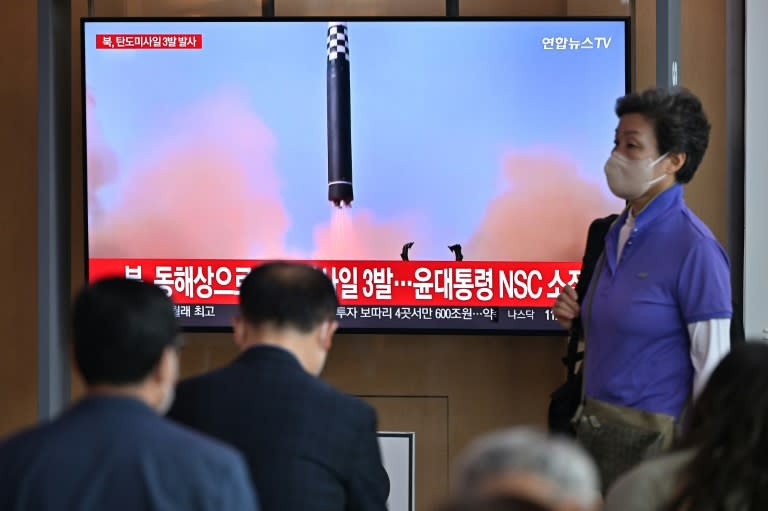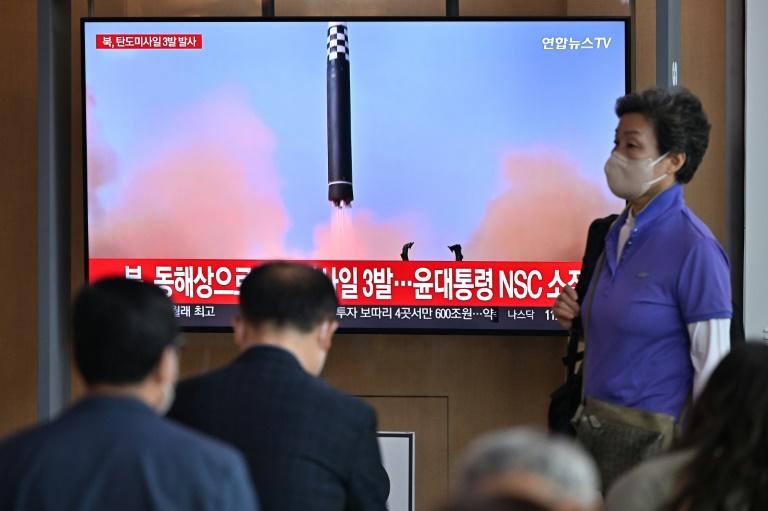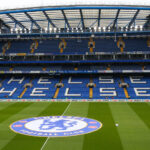
North Korea fired a suspected intercontinental ballistic missile early Wednesday, Seoul’s military said, just one day after President Joe Biden wrapped up his first Asia visit as US leader.
At least three missiles — including one suspected ICBM — were fired from the Sunan area in Pyongyang, Seoul said, where multiple recent weapons tests by the nuclear-armed regime have been conducted.
South Korea and the United States conducted a live fire “land to land missile drill” in response to North Korea’s “suspected ICBM and missile provocations”, Seoul’s military said.
“North Korea’s successive launch of a suspected intercontinental ballistic missile and short-range ballistic missile today is an illegal act in direct violation of UN Security Council resolutions,” Seoul’s government said after a National Security Council meeting.
South Korea’s new President Yoon Suk-yeol oversaw the meeting, which said the launches — one of nearly 20 tests so far this year by Pyongyang — were a “serious provocation that threatens peace on the Korean Peninsula and the international community”.
South Korea’s Joint Chiefs of Staff said in a statement that it had “detected at around 0600 (2100 GMT), 0637 and 0642 the firings of ballistic missiles launched from Sunan area towards the East Sea”, it said, referring to the Sea of Japan.
“The first ballistic missile (suspected ICBM) had a range of around 360 kilometres (225 miles) and an altitude of around 540km,” Seoul’s Joint Chiefs of Staff said in a statement.
The second ballistic missile “disappeared at an altitude of 20km” and the third — a suspected short range ballistic missile — travelled around 760km at an altitude of around 60km.
“The details are under close analysis by South Korean and US intelligence,” the statement said.
– Get tough –
The Wednesday launches are the latest in a blitz of sanctions-busting weapons tests by Pyongyang this year, including test-firing intercontinental ballistic missiles at full range for the first time since 2017.
The latest apparent test come just days after Biden left South Korea Sunday after a trip overshadowed by US and South Korean officials warning that Kim could carry out a nuclear test while Biden was in the region.
While in South Korea, Biden joined Yoon for talks, including discussing expanded military exercises to counter Kim’s sabre rattling.
Joint exercises had been scaled back due to Covid and in order for Biden and Yoon’s predecessors, Donald Trump and Moon Jae-in, to embark on a round of high-profile but ultimately unsuccessful diplomacy with North Korea.
Any build-up of forces or expansion of joint military exercises would likely enrage Pyongyang, which views the drills as rehearsals for invasion.
On his last day in Seoul, Biden told reporters he had a only a short message for Kim: “Hello. Period.”
And he added that the United States was “prepared for anything North Korea does”.
– Covid and missiles –
Kim has recently doubled down on his programme of military modernisation.
Despite struggling with a recent Covid-19 outbreak, new satellite imagery has indicated the North has resumed construction at a long-dormant nuclear reactor.
Earlier this month, North Korea confirmed its first ever Omicron cases in Pyongyang, and the virus has since torn through its unvaccinated population of 25 million.
More than three million people have been sick with “fever” North Korean state media said Wednesday, with 68 deaths since the outbreak began in late April.
Seoul’s Foreign Minister Park Jin and US Secretary of State Antony Blinken spoke on the phone after the Wednesday launches, the Foreign Ministry said.
The pair said it was “deeply deplorable” that North Korea “is using its main financial resources for nuclear and missile developments rather than quarantine and improvement of people’s livelihood” in the outbreak.
North Korea has continued to conduct missile tests since it declared a national emergency over the Covid outbreak, although state media has not reported on the launches, as it usually does.
sh-kjk/ceb/je




